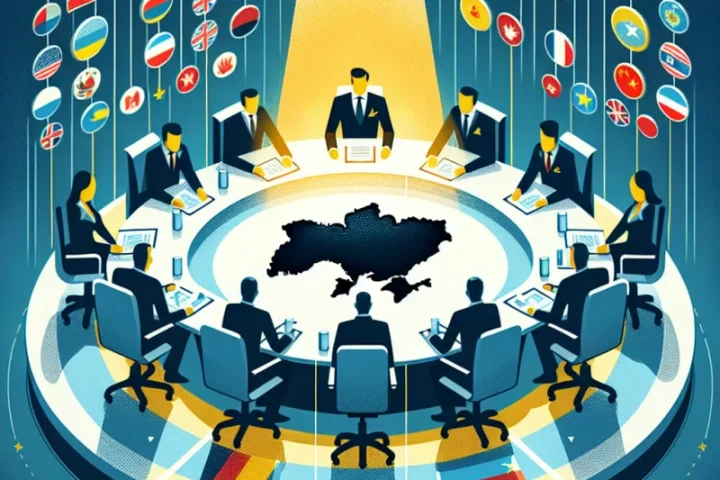BERLIN — In a virtual meeting between American President Donald Trump and European leaders, German Chancellor Friedrich Merz stated that Trump “largely shares” European positions regarding the requirements for a peace deal between Ukraine and Russia.
Following the virtual summit with Trump, Merz, alongside Ukrainian President Volodymyr Zelenskyy in Berlin, emphasized the importance of safeguarding fundamental European and Ukrainian security interests in Alaska. Merz conveyed that the message from Europeans to Trump was clear and focused on ensuring the protection of core security interests.
European leaders presented five core stances to Trump during the summit. These included Ukraine having a seat at the negotiation table, the necessity of a ceasefire before peace talks, territorial negotiations starting from the “contact line,” rejection of legal recognition of Russia’s territorial claims, provision of robust security guarantees for Ukraine, and the requirement for a transatlantic strategy to increase pressure on Putin if no progress is made in Alaska.
Notably, there was a positive atmosphere during the virtual meeting, although caution was advised regarding the potential influence of the summit on Trump’s decisions. While Trump expressed a willingness to negotiate, the specifics of his actions remained uncertain.
European leaders, concerned about Trump’s recent comments on land swapping in relation to a peace deal between Russia and Ukraine, sought to ensure that Ukraine’s interests were defended. French President Emmanuel Macron confirmed that Trump agreed with European leaders on the importance of including Ukraine in discussions about territorial concessions to end the conflict with Russia.
Ukrainian President Zelenskyy, steadfast in his rejection of land swapping, emphasized the need for strong U.S. sanctions against Russia. He also highlighted Putin’s tactics of pressure ahead of the Alaska meeting, asserting that sanctions were essential in curbing Russia’s military aggression.
As the discussions progress, U.S. Treasury Secretary Scott Bessent hinted at the possibility of imposing additional sanctions on Putin if significant concessions are not made during talks. This stance reflects a readiness to escalate measures if necessary to advance negotiations.
The ongoing talks between Merz, Zelenskyy, and other coalition members underline the commitment of more than 30 nations to support a potential peace agreement in the region. The alliance, known as the “coalition of the willing,” includes a majority of EU member countries dedicated to upholding peace efforts in Ukraine.
As diplomatic efforts intensify, European leaders remain cautiously optimistic about the prospects of advancing towards a peaceful resolution in Ukraine, with a collective commitment to ensuring the security and stability of the region.
This article has been updated.


















